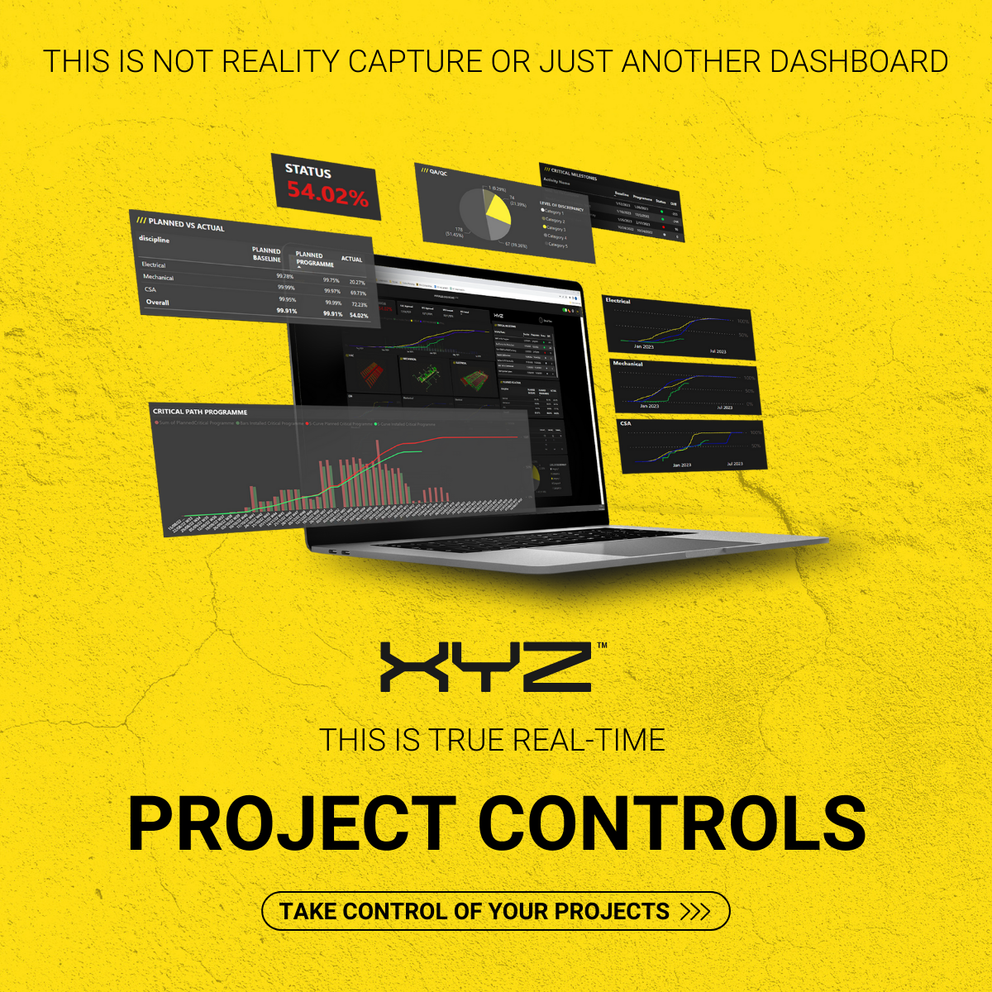-
Services
Services
Find out how we work with our clients and deliver value to construction projects from day one
-
Solutions
Solutions
Discover how all our solutions sync together to deliver construction's most powerful BIM platform to date
-
Built for
Built for
-
Industry
Industry
Understand how we support construction's biggest sectors, and hear from our clients who have experienced the power of XYZ
-
Resources
Resources
Get stuck into all our latest thought leadership, news, reports and industry leading content
-
Company
Company
Dive into what makes XYZ tick, unearth why construction is in our DNA and why we are world leaders in AR solutions

Insights
Beginner's Guide to Construction Project Management

08 March 2023
To complete a construction project on schedule and under budget, rigorous planning, coordination, and administration are essential. Construction project management entails overseeing all areas of a construction project, from original planning and design through execution and delivery.
If you're new to construction project management, this beginner's guide will provide you with a thorough understanding of the fundamental ideas and techniques. We will also learn how XYZ Reality is transforming the way construction companies handle projects at every stage.
What’s project management in the construction industry?
Construction project management is the planning, organizing, and supervising of all parts of a building project from beginning to completion. It involves supervising resources, including personnel, supplies, and equipment, in order to make sure that the project is completed on schedule and within the set budget.
Management of construction projects also involves monitoring risks and making sure safety standards are properly executed to assure worker safety and compliance with laws. Successful project management assures quality control by checking adherence to design specifications and construction standards.
A construction project manager is critical to project success. A project manager functions as a team captain who efficiently communicates with all stakeholders, including clients, designers, engineers, and contractors.
What is the role of a construction manager?
A construction project manager is responsible for supervising the complete construction project from beginning to end. They are in charge of organizing multiple stakeholders, managing resources, ensuring quality control, and managing risks.
Project managers are also responsible for creating project plans and strict timelines. A construction project manager will track the project's progress, perform frequent inspections, and handle any unforeseen delays.
A construction project manager's main tasks include:
Working across departments and sectors (architects, contractors, etc.)
Creating project plans and timelines
Obtaining the required permissions and licenses
Monitoring project progress and problem resolution
Ensuring compliance with relevant building codes and safety laws
Managing the budget and resources
Managing communication with stakeholders
To effectively execute construction projects from conception to completion, construction project management is a complicated process that involves strong organizational abilities, attention to detail, and effective leadership.
3 Phases of construction project management
First let’s outline the phases of the construction management process.
1. Preparation for construction: The pre-construction phase
The pre-construction phase is crucial because it lays the groundwork for a successful construction project. Some of the main milestones in this stage include:
Project inception: The construction project manager determines the project's goals, objectives, and scope at the project's genesis. Here, feasibility studies and hazard assessments are conducted. The financial sustainability of the project as a whole is also established.
Planning and design: At this point, architects, engineers, and other stakeholders work with the project manager to generate precise plans, drawings, and specifications throughout the design and planning stages. This involves choosing building materials, calculating costs, and developing a reasonable timeframe for the project.
Procurement: During the procurement phase, the project manager finds and sources the project's supplies, equipment, and subcontractors. This process also entails obtaining numerous bids, assessing suppliers, and negotiating contracts.
2. Construction phase
The construction phase, also known as the building phase, begins after all parts of the pre-construction phase are complete. At this point, all concepts are brought to life and the real construction work begins. During this phase, the construction project manager is responsible for:
Resource administration: Efficient resource management is critical for keeping construction projects on pace. Project managers are responsible for ensuring that labor, equipment, and supplies are used effectively and efficiently. To keep expenses under control, they must also monitor and manage the project budget.
Quality assurance: For construction projects it is critical to maintain good quality standards. To guarantee that the project fulfills the needed specifications and standards, the project manager must establish quality control procedures, perform frequent inspections, and resolve any deviations from the plans.
Monitoring and reporting on progress: The project manager is in charge of monitoring the progress of the project, comparing it to the project schedule, and identifying delays when necessary. As they monitor, managers also report to stakeholders such as the client, contractors, and the project team. This is critical for maintaining transparency and addressing issues immediately.
Risk administration: Construction job sites are incredibly dangerous. It is therefore the manager’s responsibility to identify, analyze, and reduce risks. This involves putting safety standards in place, safeguarding the site as best they can, and creating contingency plans for emergencies.
3. Post-construction phase
The post-construction phase comprises project completion and delivery. During this period, key activities include:
Final assessments: At this stage, the project manager carries out a detailed inspection before turning over the finished project to the client in order to guarantee that all components satisfy the necessary requirements. This involves checking for any flaws, addressing existing client concerns, and making repairs where necessary.
Project completion: The project manager looks after the process of handing over the project upon its completion. This includes giving ownership and responsibility of the project to the client and ensuring that all necessary documents, warranties, and permits are approved on time.
Evaluation of the project: To measure the success of the construction project, a detailed project assessment is performed. This involves assessing project performance, finding areas for improvement, and soliciting input from stakeholders. The project's lessons may be used in future building projects.
Take your project management to the next level with XYZ Reality’s solutions.
Take project management to unparalleled heights with the groundbreaking solutions offered by XYZ Reality. With our innovative technology and unwavering commitment to excellence, we empower construction professionals to surpass limitations and achieve extraordinary results. Our goal is to help teams increase project efficiency and minimize rework.
Our Engineering Grade AR™ headset, the Atom™, revolutionizes how you visualize and interact with project data, bringing designs to life right before your eyes. Experience the power measurements accurate to the millimeter and design updates in real-time. With our augmented reality tools, XYZ ensures precision and efficiency during every stage of the project.
Unleash the full potential of project management, from improved collaboration and faster communication to precise conflict detection and accurate budget forecasting. Elevate your projects and set new standards of excellence with XYZ Reality's solutions.
Book a demo today!







